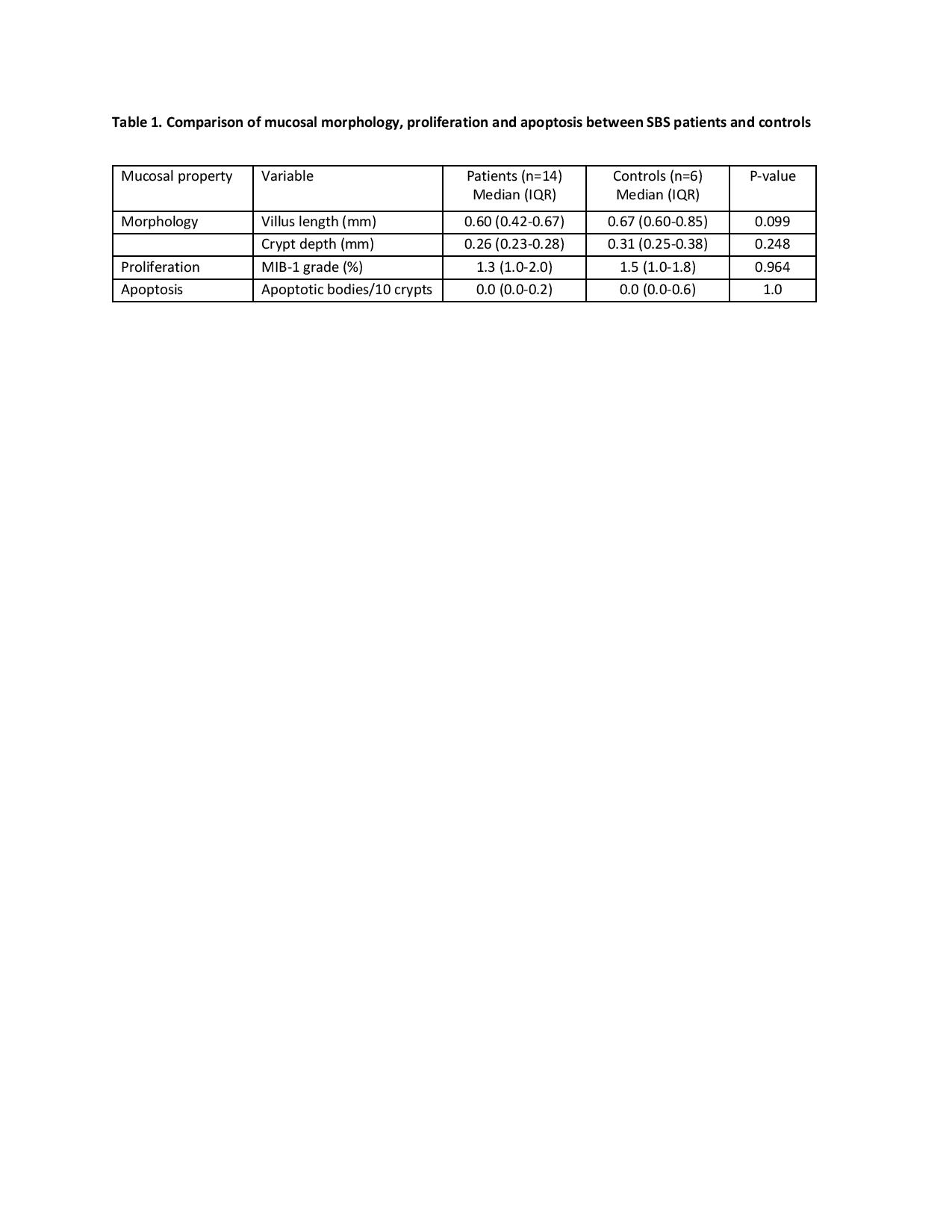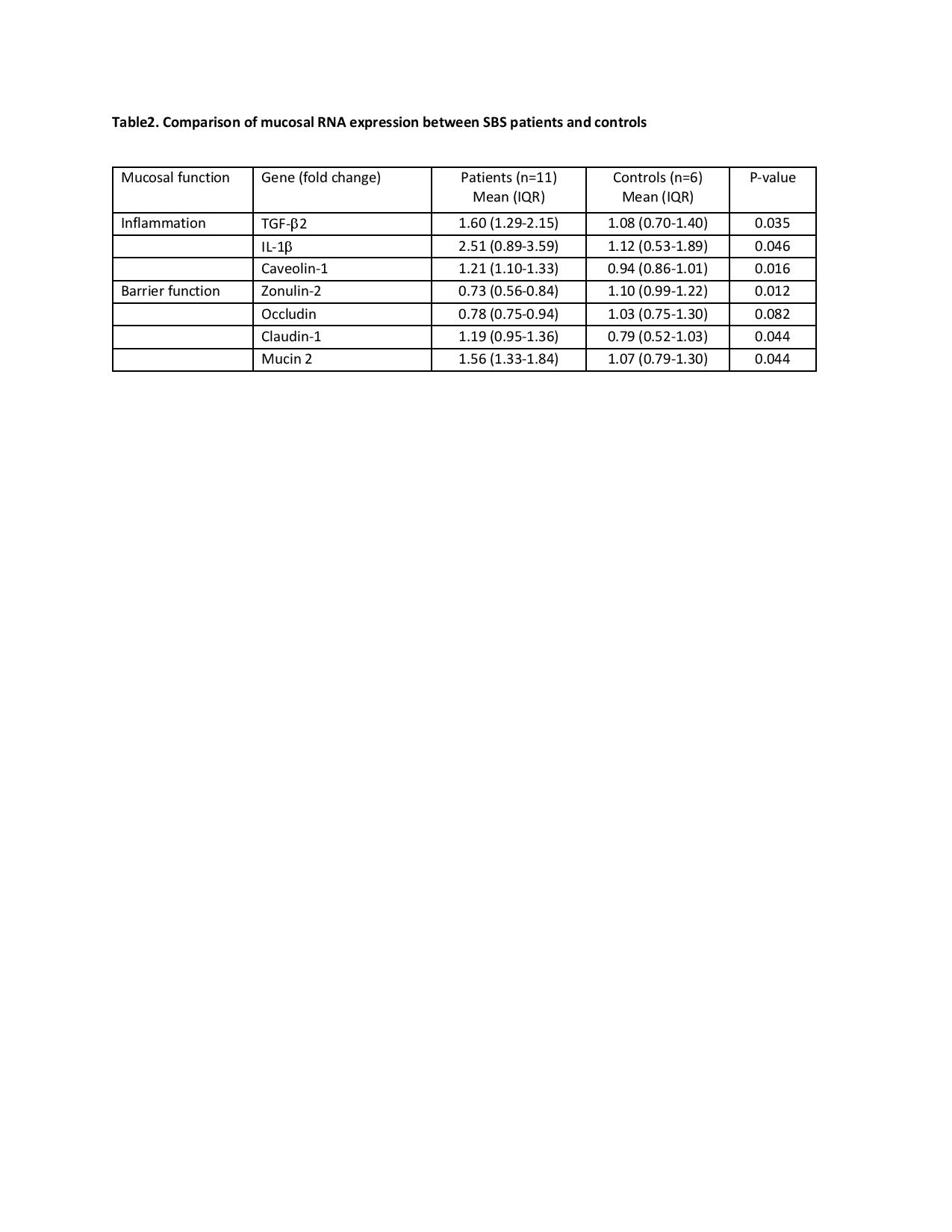INTRODUCTION: To study mucosal homeostasis in children with short bowel syndrome (SBS) during parenteral nutrition (PN).
METHODS: Fourteen SBS children currently receiving supplemental PN and enteral feeding at median age 1.5 years (IQR 1.0-6.5) and six age-matched [2.4 years (1.4-3.5), P=0.869] controls with healthy intestine were included. Duodenal mucosal biopsies were analyzed for morphology, proliferation, apoptosis and inflammation using HE-staining, MIB-1 immunohistochemistry, and for RNA expression of various genes regulating inflammation, permeability, proliferation and apoptosis. RNA expression was quantified using qRT-PCR after normalization to housekeeping genes. Unpaired two-sided comparisons were performed between the groups.
RESULTS: The remaining small bowel length was 20% (9-22%) of expected and duration of PN 1.4 (0.7-6.5) years. Villus length, crypt depth, enterocyte MIB-1 proliferation grade and apoptotic index were comparable between patients and controls (Table 1). Intraepithelial leukocyte count [0.03 (0.02- 0.04) vs 0.04 (0.03- 0.16), P=0.039)] was decreased, while mucosal RNA expression of pro-inflammatory cytokines were increased in patients when compared to controls (Table 2). RNA expression of tight junction proteins zonulin-2 and occluding were lower and claudin-1 higher in relation to controls. Patients also showed increased RNA expression of mucin 2, secreted by goblet cells. RNA expression of various cell cycle regulators and proliferative growth factors was similar in patients and controls (data not shown).


CONCLUSION: Duodenal mucosa of PN-dependent SBS children showed no structural or molecular signs of adaptive hyperplasia, but was characterized by molecular signature of increased inflammation and disturbed barrier function. These findings have important implications regarding SBS pathophysiology in humans.
.jpg )